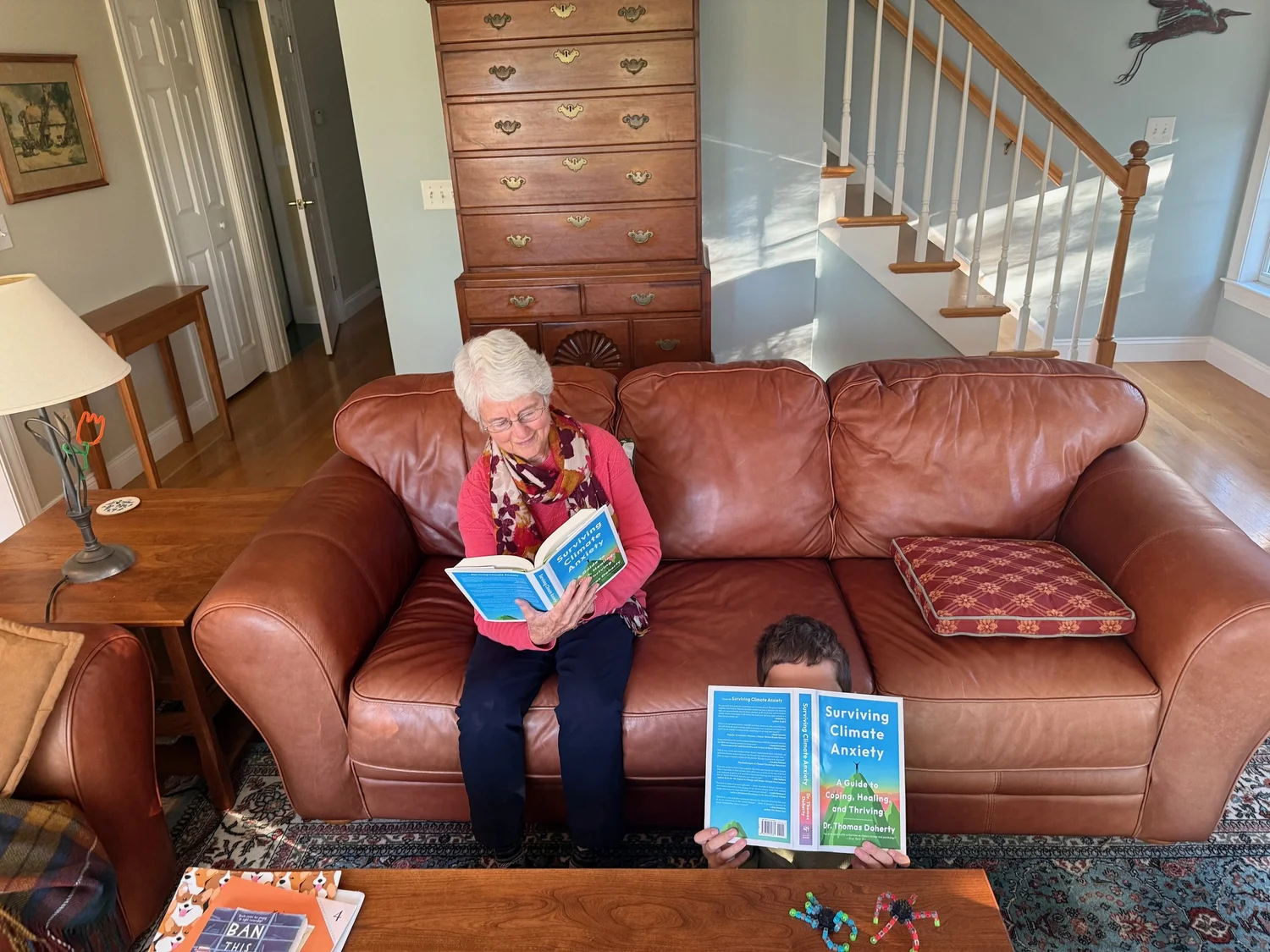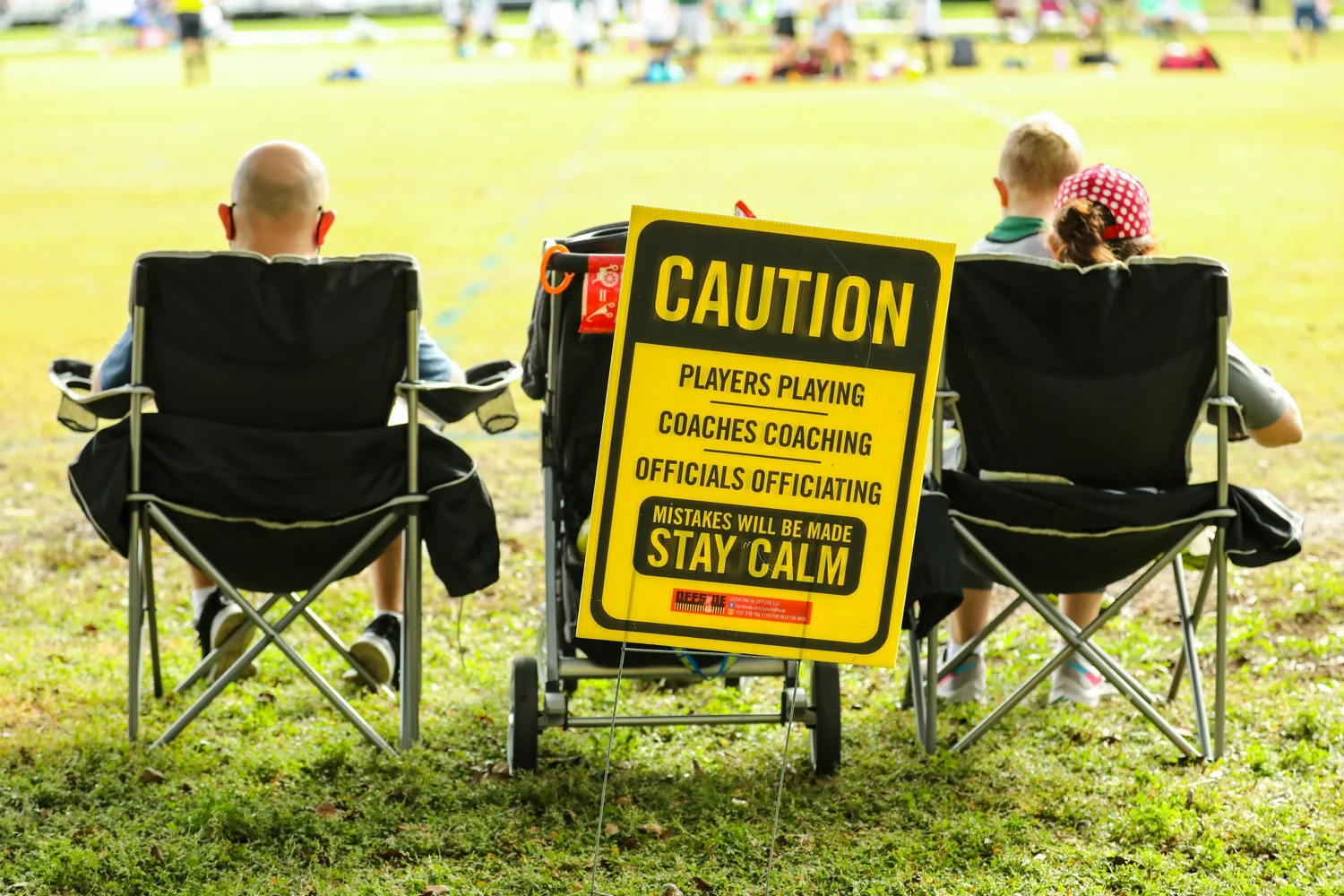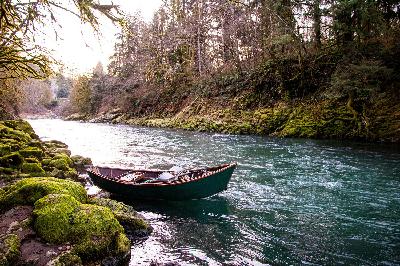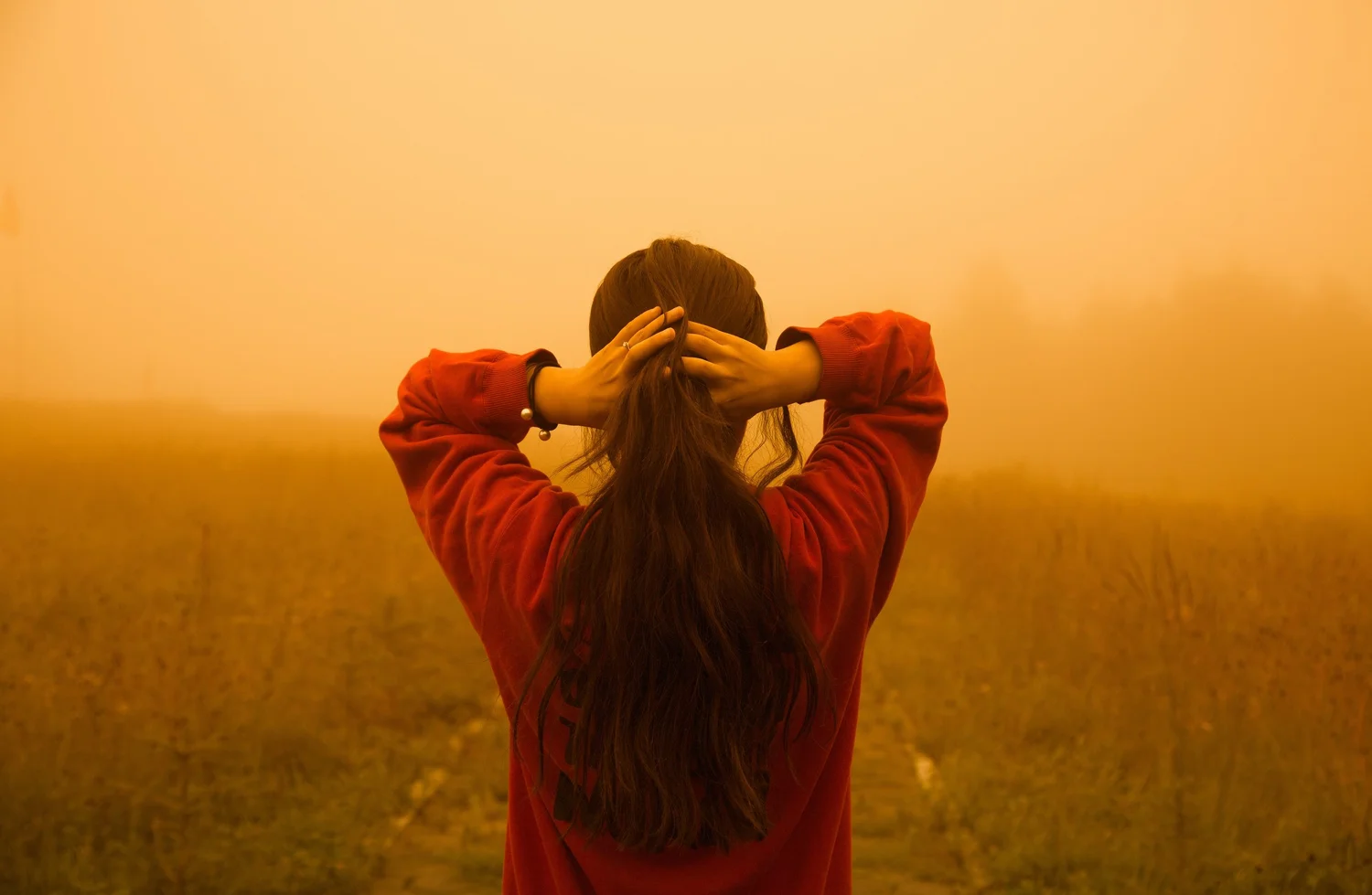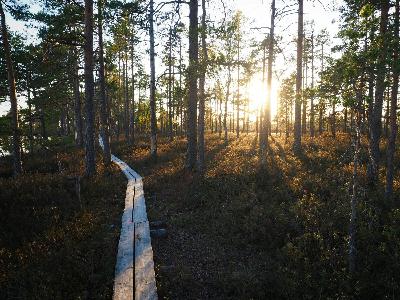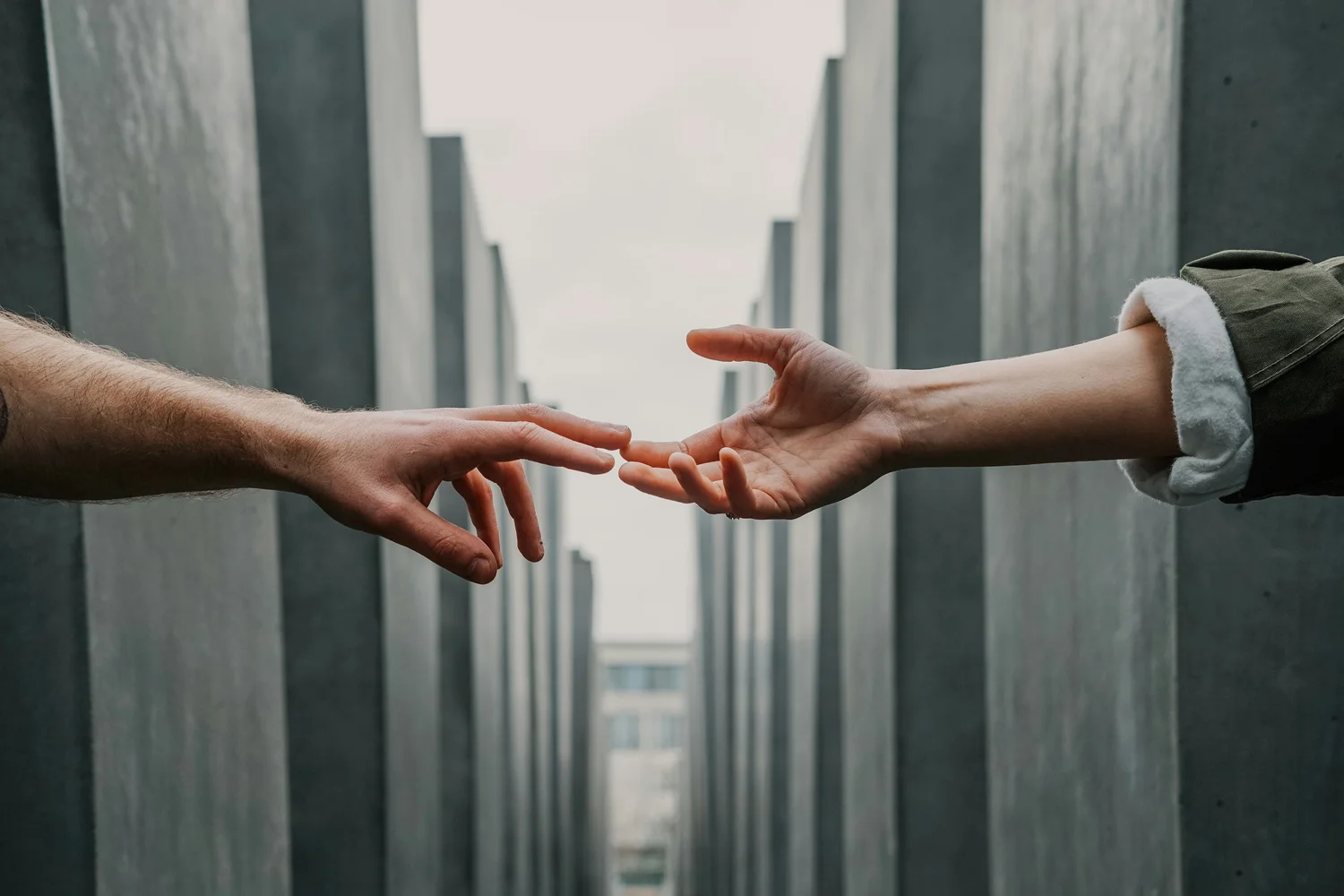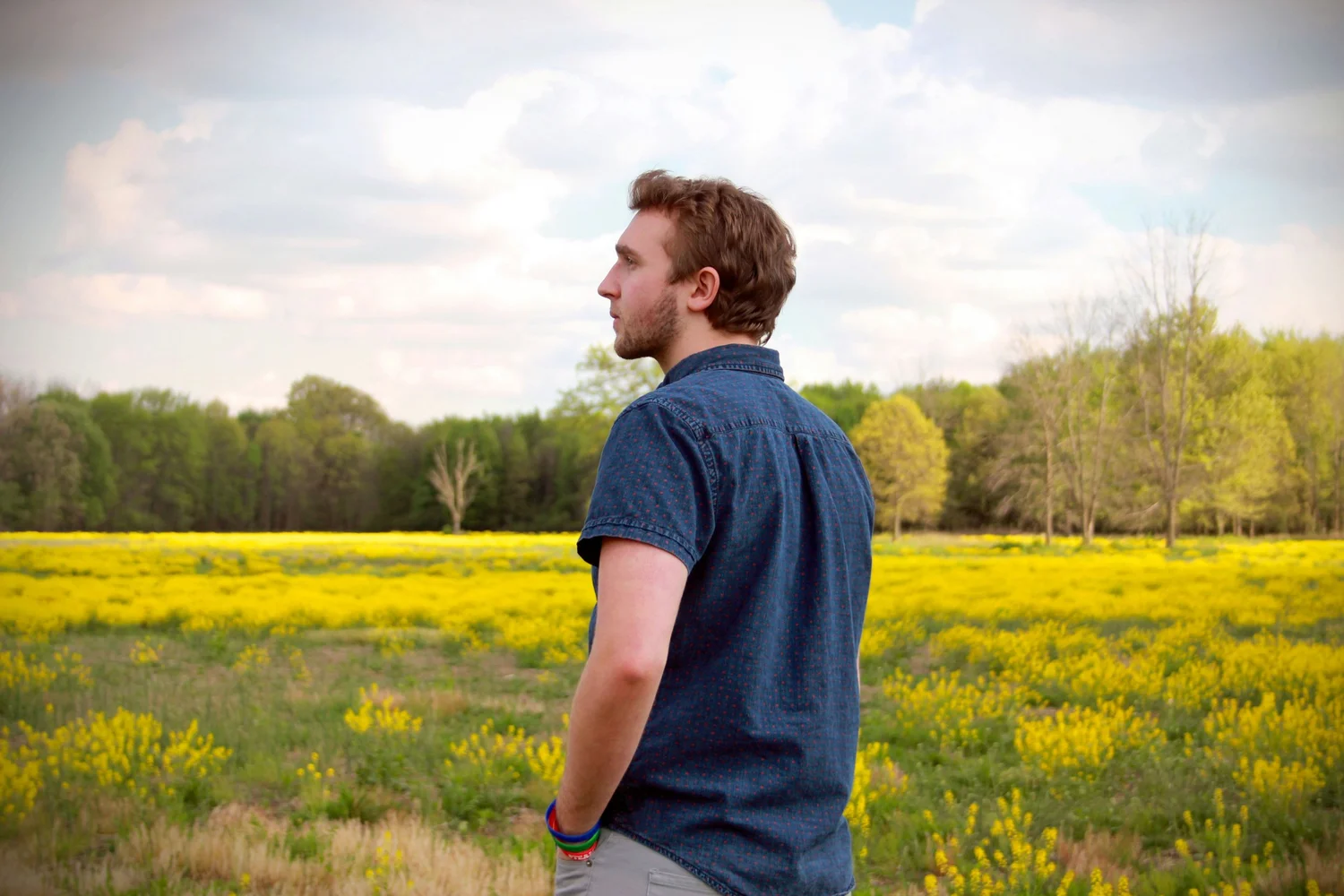Season 4, Episode 24: On Grief and Mourning for Animals with Panu Pihkala
Description
<figure class="
sqs-block-image-figure
intrinsic
">

<figcaption class="image-caption-wrapper">
image credit | Tina Kuper
</figcaption>
</figure>
Season 4, Episode 24: On Grief and Mourning for Animals with Panu Pihkala
Thomas learned about Panu’s recent research with Elisa Aaltola on animal ethical mourning and how this relates to feelings people have about pets and companion animals, farmed animals and wild creatures. Like many of our emotions about nature and environmental issues, natural feelings for kindred species are often ignored, suppressed or disenfranchised (not recognized and given standing) in human-centric society and economics. Ways to enfranchise grief for animals includes being honest and bearing witness, creating art and rituals, and sponsoring community activities. Being open about your moral commitments for fellow animals, and your love, care and empathy, can bring a sense of relief, honor, rest, peace and grace. This can free up your energy and commitment to change society's practices about our fellow creatures.
Links
A Tribute to the The Passenger Pigeon – Memorial in Wisconsin’s Wyalusing State Park
Art Exhibition: Kindred Spirits: Honoring Animals in Death
Amanda Stronza: Animal Memorials
Pihkala, Panu, and Elisa Aaltola. 2025. ‘Animal Ethical Mourning: Types of Loss and Grief in Relation to Non-Human Animals’. Frontiers in Veterinary Science 12 (April):1526302
Pihkala, Panu. 2024. "Ecological Sorrow: Types of Grief and Loss in Ecological Grief" Sustainability 16, no. 2: 849.
Transcript
Transcript edited for clarity and brevity.
[music: “CC&H theme music”]
Introduction voice: Welcome to Climate Change and Happiness (CC&H), an international podcast that explores the personal side of climate change. Your feelings, what the crisis means to you, and how to cope and thrive. And now, your hosts, Thomas Doherty and Panu Pihkala.
Doherty: Well hello, I'm Thomas Doherty.
Pihkala: And I am Panu Pihkala.
Doherty: And welcome to Climate Change and Happiness. This is our podcast, a show for people around the globe who are thinking and feeling deeply about climate change and other environmental issues and different tumultuous times that we're all living through. This is a podcast where we have asked this provocative question of what it means to be happy in the modern world or what would it mean for us to be happy in the modern world. Often to do that, we must go through barriers to happiness, and we have to deal with things that are not happy so we can figure out how to make sense of them or how to make peace with them. And that's kind of where we're at today. Panu, as you all know, if you've been listening, is always studying different interesting things about emotions in the world. And one of the areas that Panu has been working on is grief and loss regarding animals and other animals outside of the human animal. So that's what we're talking about today. So, I'm going to be interviewing Panu about this research. So, let's jump into it. Panu, you’ve been doing some research and we'll put information in the show notes about feelings of loss and mourning and ways to be ethically mourning loss and grief related to non-human animals. So, what kind of things have you been discovering there?
Pihkala: Yes, and dear listeners, if you think of your life history, almost all of us have at least some relationship with other animals. For many people, there's been some kind of pet or companion animal in places and families where we have lived. Some people have been raising animals for various purposes and there may be emotional connections in many ways or various hobbies or practices. Some animal species in the Western World or industrialized world are often in positions where there's strong emotional connections between humans and them. Dogs and cats are prominent, but there's a lot of other companion animals and pets. The bond between horses and people who ride or take care of horses can be very strong. So, that's one dimension here and for many people, losing a close animal has been an important lesson in loss and grief because the lifespan of many animals is shorter than the human lifespan. So, depending on where you live and what kind of privileges one has, it may be that the death of a dog or cat is one of the first death experiences in close family relations. And in grief research, the focus has been on humans who are dying or suffering, but for many decades it has already been recognized that losing pets or companion animals evokes strong emotions in people, which shouldn't come as a surprise. This topic has actually been a contradictory and difficult one in many societies because there may be assumptions that deeper grief should be related to human loss, for example. So, there's been people who understand you when you talk about loss and grief after losing an animal close to you. And then there may be people who really can't resonate with that and that often leads to what is called ‘disenfranchised grief’ in research which is grief that is not given a public voice or validation. How about you, Thomas, when you think of your life history, does this resonate?
Doherty: Well, I think this research is really helpful. I'm thinking about it and this whole idea of disenfranchise means it's not recognized. We don't talk about it and so we don't have language for it. But it's helpful for me to see what you've been studying because you talk about grief that we feel about pets and animals that are close to us, like cats and dogs and household pets, but then also wildlife. You link it to grief about wild animals which could be whales or extinct animals, wild condors, orangutans, or any kind of animal and the grief we feel when they're threatened with extinction, or their habitats are gone. So, that's a big thing that people feel. And then there’s this more contentious area of farmed animal grief because most of the animals on the planet right now, pound for pound, are livestock and farm animals. It is one way humans have transformed the planet. We have so many thousands of chickens and cows and all this stuff around the world. And that's just a really touchy topic on a number of levels ethically. So, it's really courageous to do this.
I can touch on it on a number of levels, my own concerns about wild animals that I value and love. I've had pets, I've had a dog for many years that I had as a young adult that I had to put down when he was old and had illnesses and that was very sad. I have an ancient cat, Lakshmi, who's going to be 21 this year and she's just an old person in our home that's been here since she was a kitten. So, we're preparing for her end of life. So, that's a really personal level. And in my family, my two sisters are both very strong animal rights advocates, so we have interesting discussions about veganism and various things. My sister, Sherry, was a zookeeper and worked in zoos for a number of years and she also worked at a place called the Center for Great Apes in Florida which was a refuge for chimpanzees and orangutans that had been used in movies or kept as pets. It was essentially like a rehabilitation old folks home hospice for these large wild animals. And I think people don't even realize that these kinds of places exist for elephants and orangutans. There's a whole subculture of people that are working for animals. So anyway, I think it's huge. When you talk to people or do the research, what are some of the surprising things that you notice?
Pihkala: Yes, thanks for reflecting on all that. I also met Lakshmi when visiting Portland this spring. She's old, but still going. And in my family childhood, we also had a cat so that's a personal resonance. And as you said, there's three case examples in this article. There's actually two research articles coming out, and one is already out there. It's called “Animal Ethical Mourning: Types of Loss and Grief in Relation to Non-Human Animals.” So, there's a lot in the title and it’s written together wit


